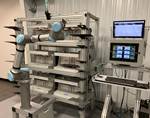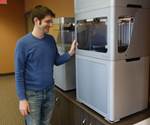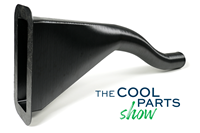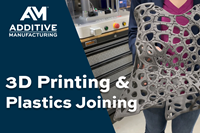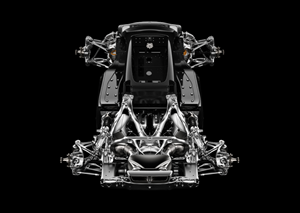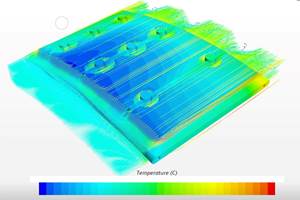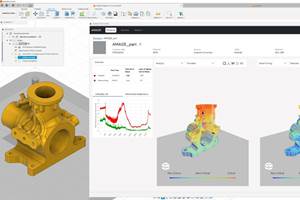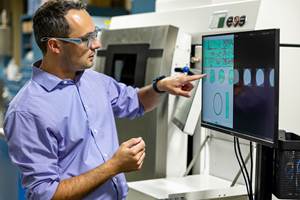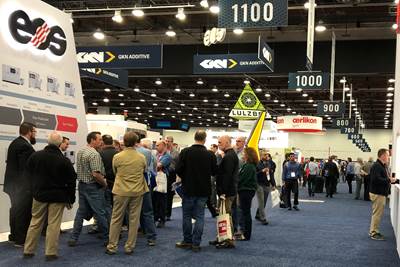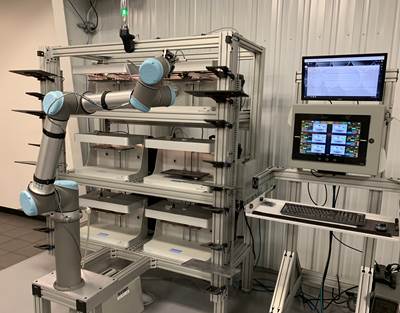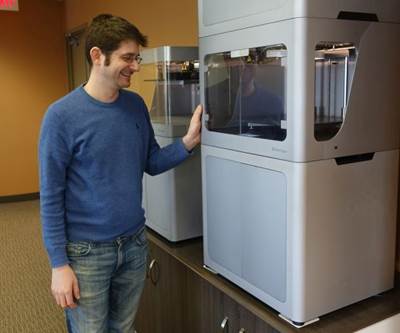Blacksmith Promises Adaptive Manufacturing for 3D Printing and Beyond
Blacksmith, an artificial intelligence (AI) solution from Markforged, promises to adjust part designs and processes based on real results. The implication is better, easier 3D printing — but also adaptive manufacturing more broadly.
Fighting process drift is a need for any kind of production, but the need is particularly great within production via additive manufacturing (AM). The variables affecting 3D printing (speed, layer thickness, material, ambient temperature, and more) result in a process that takes time to dial in and effort to keep that way. When 3D printing is coupled with secondary processes such as sintering, maintaining consistency becomes even more challenging.
Many companies turn to 3D scanning in response to this challenge. A 3D printed part’s geometry can be captured as data points and mapped onto the original CAD file to check whether it is within tolerance; what the problem areas are, if any; and whether the part is good or scrap. If problems discovered this way can be fixed in process, the user might create a deviation list and go back to the CAD file to manually adjust the design to correct for these anticipated problems.
All this takes time, skill and human involvement. What if there was another way?
Blacksmith, a new software tool from Markforged, promises to enable more agile design and process adjustment and therefore more dependable manufacturing. (The technology premiered at Rapid + TCT 2019 and was one of the cool innovations we highlighted during the show.) The goal is to help users get to tighter and tighter tolerances on their parts through an “adaptive manufacturing” approach that is scalable to production operations.
Using a combination of artificial intelligence (AI), 3D scan data and design tools through Markforged’s Eiger software, Blacksmith is able to compare as-printed (or as-sintered, in the case of the company’s Metal X platform) outcomes with the part as-designed, and automatically make adjustments to the part file in Eiger, compensating for anticipated outcomes so the part will come out better the next time.
Blacksmith is compatible with a range of 3D scanning technologies. Potential users likely already have the hardware they need to put it to work, and the system can allow these resources to be used more powerfully. Rather than having the scanner capture every data point the laser comes in contact with, Blacksmith can communicate what, specifically, the scanner is looking for — a wrench, for example. As it scans, the software looks for a shape that resembles a wrench, and captures only data relevant to this shape, cutting down on data processing demands.
The short-term advantages of this adaptive system include the ability to rapidly dial in a part, move more quickly from prototyping to production, and manufacture more productively at scale. Then, as Blacksmith continues to work, the software learns to account for machine to machine variation, helping to counter process drift and maintain quality across an even broader additive manufacturing operation.
But the technology’s potential goes beyond this. Markforged founder and CEO Greg Mark points to AM’s workforce challenge, and the lack of enough engineers and operators who know 3D printing. Solving this problem involves training (which the company is addressing through its own Additive Manufacturing University program), as well as “making 3D printing actually easy to use,” he says. An adaptive manufacturing approach such as Blacksmith means better 3D printed parts in a process that is simpler for companies to implement and refine.
And, perhaps most significantly, “3D printing is just the start,” Mark says. Nothing about the adaptive approach Blacksmith uses is limited to additive manufacturing. In the future Blacksmith, could also bring adaptive manufacturing to CNC machining and other manufacturing processes.
Blacksmith will be available to Markforged Metal X and X7 3D printing systems users later this year.
Related Content
Divergent Technologies Eyes High-Volume, Optimized Automotive Production Through Additive
While some automotive OEMs are using additive here and there, Divergent Technologies is basing its vehicles on 3D printed structures.
Read MorePhysicsX, Velo3D Partner to Provide Engineers with AI Simulation Tooling
The collaboration gives Velo3D customers access to AI-enabled physics simulation and optimization capabilities, and gives PhysicsX customers increased manufacturing flexibility to produce their most advanced concepts.
Read More1000 Kelvin’s AMAIZE AI Co-Pilot for Additive Manufacturing Now Available for Autodesk Fusion
The AMAIZE software is an “AI co-pilot” for engineers, predicting print issues upfront, performing corrections and generating industrial-grade, ready-to-use print files specific to a machine.
Read MoreInspection Method to Increase Confidence in Laser Powder Bed Fusion
Researchers developed a machine learning framework for identifying flaws in 3D printed products using sensor data gathered simultaneously with production, saving time and money while maintaining comparable accuracy to traditional post-inspection. The approach, developed in partnership with aerospace and defense company RTX, utilizes a machine learning algorithm trained on CT scans to identify flaws in printed products.
Read MoreRead Next
10 Impressions of Rapid + TCT 2019
The largest additive manufacturing exposition in North America is now a mature industry trade show. Here is what the editors of Additive Manufacturing Media saw at this year’s Rapid + TCT.
Read MoreAutomated 3D Printing at Evco: Composites, Cobots, Email and More
Injection molder Evco has long seen the importance of industrial automation for plastics processing. Its latest automation feat? A cobot-tended cell of 3D printers for manufacturing fixtures and customer products unattended.
Read MoreFFF 3D Printing for Metal: Sintering Can Wait
Separating 3D printing from high-temperature processing is part of how the Markforged Metal X realizes a price less than established metal AM equipment.
Read More
.jpg;width=70;height=70;mode=crop)

